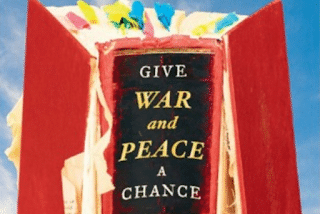
E.B. White’s famous and amusing quote (here in the picture) intrigues me. The first few times I saw it I nodded in agreement – prejudice, what an awful thing, huh? – but actually, I wonder if there is more to it that that. Perhaps White was writing in praise of prejudice as a handy tool when you don’t know all the facts. I had simply read the sentence and unthinkingly arrived at an uninformed opinion – which of course was what I had wanted to believe! I have come to wonder if I have been prejudiced against prejudice, at least in the sense I mean here.
That may sound heretical; no-one wants to be labelled ‘prejudiced’ – but in fact there’s a lot of be said for having some opinions without having to get all the facts. Planning a vacation abroad without a detailed study of political and physical risks? Deciding if you should eat breakfast without checking each ingredient on the cereal packet? Driving to work without thoroughly checking the brakes on your car? Unless you are vacationing to Syria, highly allergic to nuts, or have spotted a pool of thick fluid under your car, it makes no sense to insist on ‘all the facts’. Most of the time, we can proceed without a moment’s thought. Pre-judging – that is, forming opinions without all the facts – is a necessary part of life; we simply couldn’t function everyday if we needed all the facts about everything.
So if cannot get by without making assumptions, then the important thing is knowing when we are making them, and the nature of these assumptions. And knowing that we might jump too fast in some cases, we need to be open to thinking carefully here. So we can recognise that some prejudices are sensible, and a good thing.
This hilarious video (from The Chaser) reinforces the need to be a little refined in our understanding of prejudice, and actually think quite hard about the facts and the reasoning behind prejudice. In this case, probably the only times we have heard of or seen men with stockings over their heads are when they are committing violent acts, and so it makes sense to generalise about an individual. In this case the humour arises because we know know the real reason they are wearing the stockings – but we have sympathy with the shopkeepers who are making a reasonable judgement on limited information. Three elements – the facts, and the use of reason, and the capacity to see things from another perspective – are vital tools that we need to get our students in the habit of using. Anyone following much of the news these days will know see the vital importance of this far beyond the comedy sketches, or Theory of Knowledge classes, where we discuss these ideas. It is no exaggeration to say that understanding the nature of prejudice in an intelligent, informed and thoughtful way, has major real consequences around the world – and for some poor souls, it can literally (I use the word carefully) be a matter of life and death.
For me, there are three vital points here – firstly differences of opinion on issues like this will always exist; secondly, we cannot know all the facts in every case; and thirdly as a school we are not in the business of indoctrination. We need to help students how to think, not tell them what to think.
So how can we help our students – tomorrow’s voters – think well? The answer is that we teach our them to recognise when an argument hinges on facts, and when it hinges of chains of reasoning, and when they are making judgements(each of these elements are subject to different standards). Recognising these tends to lead to the humility to know that our own perspective is one among many (of course that not mean that all opinions are equally valid. But it does mean we have a duty to listen and understand). One of the great drivers in progress in the last few decades (yes, really, see here and click through to see more) has been more and more people being more and more able to see think critically for themselves, and to recognise the truth when they hear it.
I remember asking a Grade 11 Theory of Knowledge class to jot down their thinking about stereotypes, assumptions, prejudice and bias. Their enquiring and concerned responses were fascinating to read. One, thinking about the responsibilities of individuals wrote “a stereotype is the dominant discourse of a particular group of society” whereas “prejudice… is often more personal”. Another suggested that assumptions and prejudice are about how we think, whereas bias and stereotypes are about how we act – recognising of course that “both of them are really connected because one depends on the other”. Now you or I or anyone else might define these terms slightly differently (there are no right answers); but the key things here is the thinking and the grappling to better understand these deceptively difficult ideas. These students are making the kinds of distinctions, and seeing the subtleties that will mean they will avoid the ridiculous stereotypes we have become accustomed to in the media, sadly. They’ll be ready to demand facts where necessary, and to follow reason wherever it leads; and that means they’ll be ready to contribute to the solution, not to the problem. The process is never done – but I believe that it is through these open, complex and contested conversations that we are giving students the tools that will help them approach the truth, and in doing so, help shape a better world.



2 Responses
This is brilliant! Thanks for sharing your reflections.
This is very cool – thanks